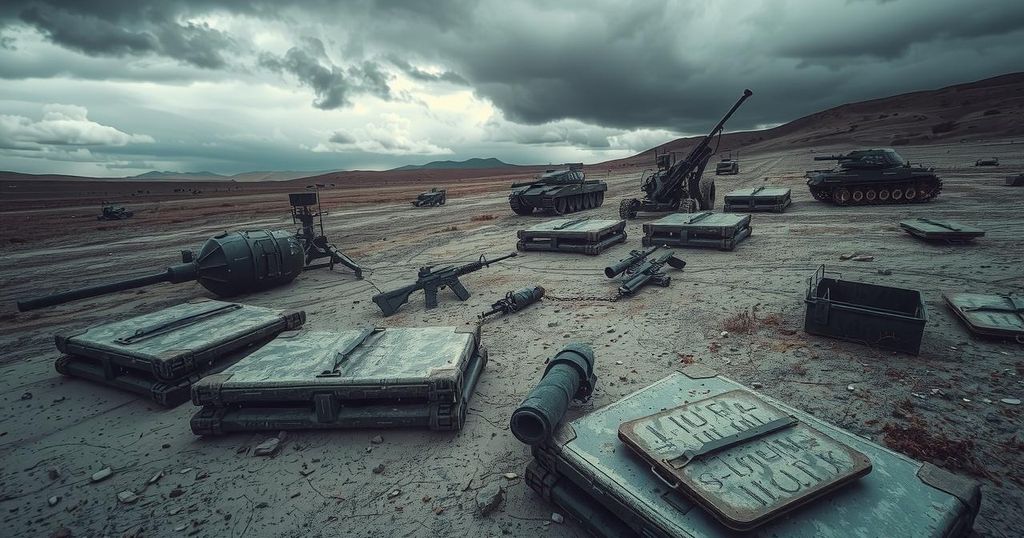The recent surrender of Romanian mercenaries in the Democratic Republic of Congo highlights a failed attempt to bolster the DRC army against the M23 rebel forces. Promised lucrative salaries, the mercenaries faced operational challenges, exposing flaws within the DRC’s military strategy, including disparities in pay and chaotic command structures. Their experience raises critical questions about the ethics and effectiveness of foreign involvement in conflict regions.
The recruitment of nearly 300 Romanian mercenaries to support the Democratic Republic of Congo (DRC) army has ended in failure following their surrender during a rebel assault on Goma. Tasked with assisting against Rwanda-backed M23 rebels, these mercenaries were promised monthly earnings of approximately $5,000, significantly higher than regular army personnel who earn around $100 or go unpaid. Their collapse following the assault not only dashed their financial hopes but also exposed the vulnerabilities within the DRC’s military strategy.
The Romanian soldiers took refuge at a UN peacekeeping base while the M23, equipped with advanced military support from Rwanda, advanced toward Goma. Constantin Timofti, a coordinator for the mercenaries, described the DRC army’s retreat as a crucial factor leading to their surrender. Negotiations between Romania and the M23 ultimately resulted in the mercenaries being handed over to Rwandan forces.
Prior to their surrender, footage showed an M23 commander chastising one Romanian for their high salary compared to Congolese troops, insisting they were fighting for their future. While the contract revealed the mercenaries earned $5,000 during active duty, the disparity in pay highlights underlying tensions within the military ranks. Observers noted that many of the hired personnel had military backgrounds, yet the recruitment process lacked transparency.
Asociatia RALF, responsible for deploying the mercenaries, has been scrutinized for its role in military operations throughout Africa. The company had previous contracts aimed at enhancing the DRC’s military capabilities amid ongoing conflicts with various militias capitalizing on rich mineral resources in North Kivu. Despite the purported intentions to train Congolese troops, many mercenaries claim they were assigned frontline duties rather than solely instructive roles.
Discontentment has arisen among Congolese army personnel regarding pay disparities and operational conditions. Many soldiers have expressed frustration with their low wages, especially in contrast to the seemingly luxurious salaries of their foreign counterparts. The DRC government has not provided insight into the recruitment or payment processes, leaving many questions unanswered about the ongoing military efforts and the implications of foreign involvement.
The situation in the Democratic Republic of Congo has been exacerbated by the involvement of various foreign mercenary groups, including the recent recruitment of Romanian fighters. The DRC has experienced long-standing instability, particularly in North Kivu province, where armed groups vie for control over lucrative mineral resources. The deployment of foreign mercenaries aims to bolster the DRC army’s capabilities against rebel forces, specifically those aligned with Rwanda, but has raised concerns about accountability and military effectiveness. The DRC’s military strategy has come under scrutiny due to inadequate oversight and inconsistent command structures. Reports indicate that the amalgamation of various military forces complicates operational effectiveness, as overlapping responsibilities hinder coordinated efforts. Furthermore, the economic disparity between foreign mercenaries and local military personnel has fueled resentment and raised ethical questions regarding the use of hired combatants.
The experience of Romanian mercenaries in the DRC has unveiled critical issues within the country’s military structure, characterized by operational disarray and inequitable pay practices. The surrender of these hired soldiers illustrates the challenges faced by the DRC in combatting well-supported rebel forces, as foreign involvement raises complex questions about the efficacy and morality of hiring mercenaries. As the conflict continues, it is imperative that solutions prioritize coherence and effectiveness within the DRC military apparatus to restore stability.
Original Source: www.bbc.com






